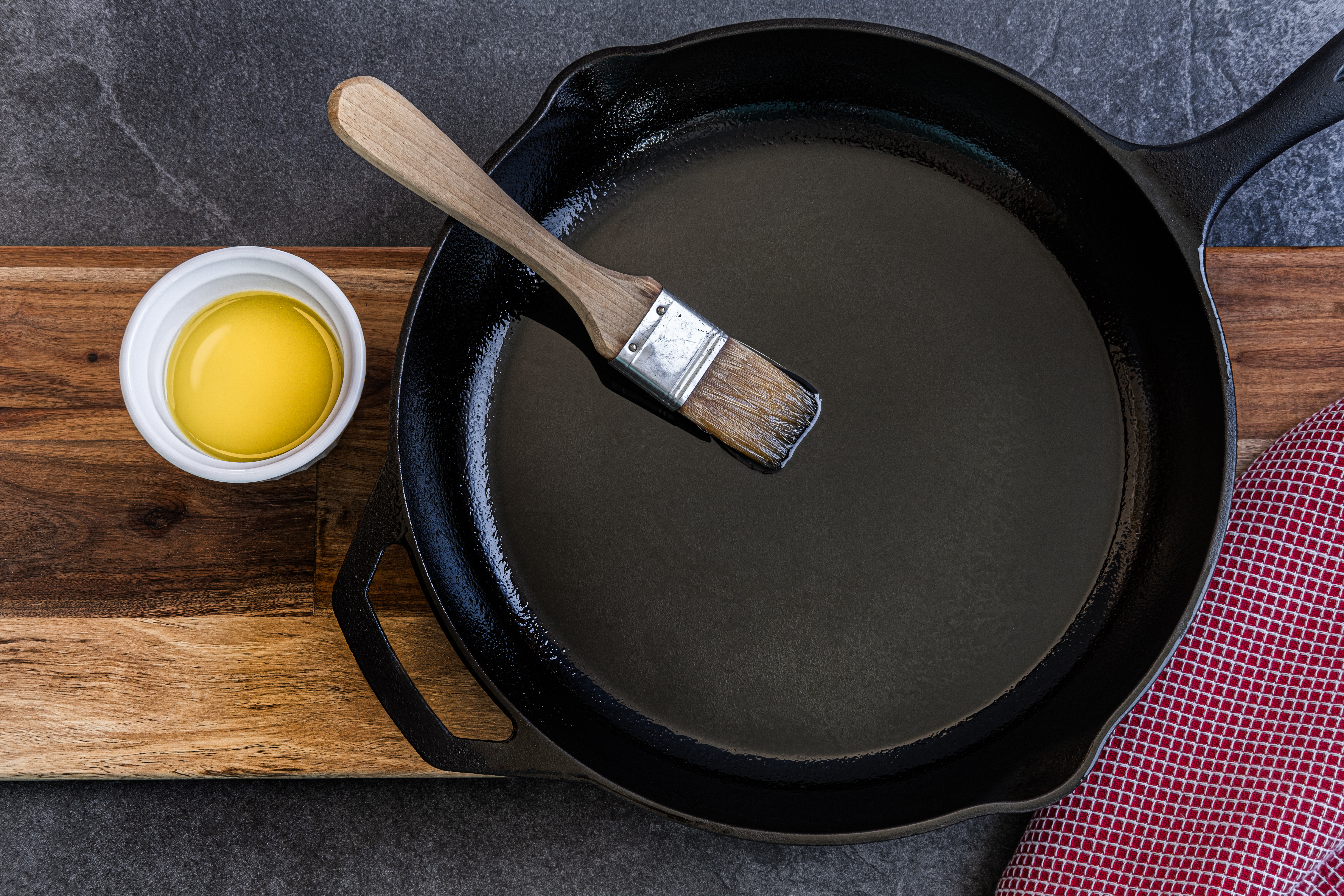It’s hard to find a kitchen without a cast iron skillet these days, and it’s no wonder why–from pancakes and eggs to fresh apple pie, there’s almost nothing you can’t create with a cast iron skillet. They're extremely versatile, easy to use, and almost impossible to break. What more could you ask for in a kitchen tool?
Although cast iron skillets are virtually indestructible, it’s still important to give them a little love and care to keep them in their best condition. With a little routine maintenance, your cast iron skillet really can last forever! The first step in ensuring your cast iron skillet lasts is to invest in product protection for it. With Mulberry Unlimited, you can get coverage for all your kitchen appliances, accessories, and more under the same product protection plan, offering the ultimate peace of mind.
So how do you clean cast iron skillets? Here’s everything you need to know:
How do you maintain a cast iron skillet?
Maintaining your cast iron skillet is simple, and it really requires only two steps:
- Cleaning. As with any cooking tool, your cast iron skillet needs to be washed after every use. While it’s obviously important to remove leftover food and crumbs from the skillet, cleaning it is also necessary because it prevents rust from forming on the surface.
- Seasoning. Second, cast iron skillets are unique compared to other kitchen items because they require seasoning–and no, this doesn’t mean dumping a bunch of spices on your skillet! Seasoning your cast iron skillet simply means conditioning the surface with a layer of oil. This is what keeps your cast iron skillet non-stick. While most other cooking pans use teflon or other non-stick surfaces, this seasoning process is what makes cast iron skillets so unique. And the best part of all? Even worn down cast iron skillets can be restored to their prime with this simple process.
Seasoning your cast iron skillet with oil serves two purposes: First, it makes your skillet easier to cook with because it creates a surface where food won’t stick. Secondly, it protects your skillet from developing rust spots. Without seasoning, your cast iron skillet will gradually become less effective, so it’s important to make seasoning part of your routine maintenance.
How do you take care of cast iron after each use?
Let’s take a look at how to care for your cast iron skillet after each use. As you’ll see, the process is simple, but for best results, it’s important to stay consistent! Here’s how to clean cast iron skillets–and how to season them too!
How to clean a cast iron skillet
Cleaning cast iron skillets is easy, and similar to how you clean most of your kitchen tools and gadgets. Simply use warm and soapy water to scrub your skillet until all of the food residue has been removed. When scrubbing, avoid metal scrubbing tools and opt instead for firm but non-abrasive sponges or scrubbers. After washing, dry your skillet carefully with a towel in preparation for the next step.
Note: There’s a common misconception that using soap to clean your cast iron skillet is harmful. This is because scrubbing your cast iron skillet with dish soap will remove the seasoning layer that keeps your pan non-stick. However, this is only a problem if you aren’t going to season your skillet afterwards–but you definitely should.
How to season a cast iron skillet
Seasoning is a crucial part of maintaining your cast iron skillet. Although the term “seasoning” might sound fancy or complicated, it’s really quite simple–seasoning simply means adding a layer of oil to your cast iron skillet. Here’s how to season cast iron skillets:
- Place your freshly-washed skillet upside down in a warm oven for 10 minutes. This will help remove excess moisture from washing.
- Remove the skillet from the oven and rub the warm surface of the skillet with an oil coated paper towel. The combination of the heat and oil causes a chemical reaction that creates a naturally non-stick surface.
Final thoughts
When it comes to versatile, indestructible, and effective cooking tools, a cast iron skillet is hard to beat. From baking a fresh batch of cornbread to frying up some eggs for breakfast, you’ll find yourself reaching for it regularly, so it’s important to properly maintain it. With a few of the tips in this article, your cast iron skillet will last for a lifetime–and generations to come.
And of course, don't forget to invest in product protection for your skillet. Subscribe to Mulberry Unlimited to get coverage for all your kitchen appliances and accessories under the same product protection plan.






